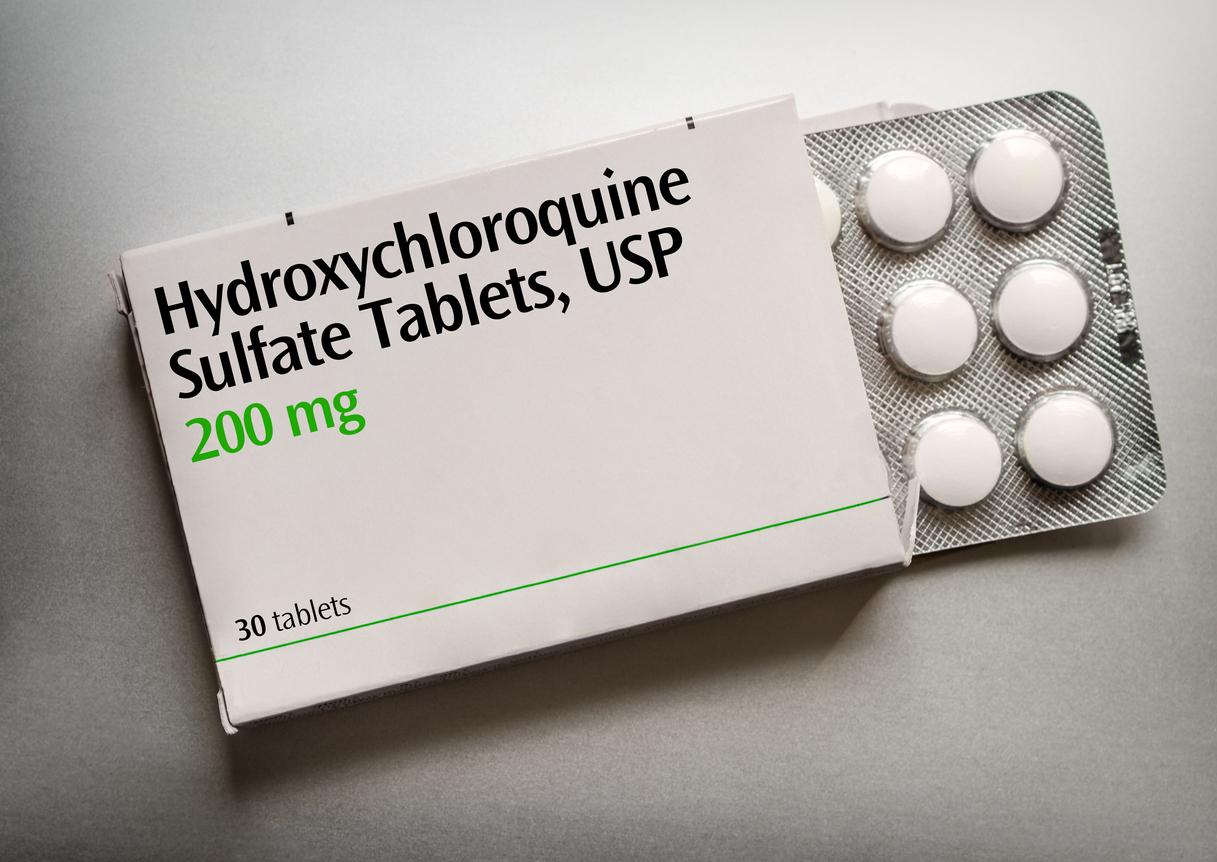A randomized, controlled trial of 685 adult COVID-19 outpatients in Brazil finds that neither the antimalaria drug hydroxychloroquine nor the antiviral drugs lopinavir-ritonavir significantly lowered rates of coronavirus–related hospitalizations when given soon after symptom onset.
In the study, published today in JAMA Network Open, researchers from the Cardresearch-Cardiologica Assistencial e de Pesquisa enrolled COVID-19 outpatients with recent symptom onset in 10 cities in Brazil from Jun 2 to Oct 9, 2020. The trial was stopped after the interim analysis owing to treatment futility. The study was part of the TOGETHER Trial to evaluate the effectiveness of repurposed therapies in high-risk, nonhospitalized, adult COVID-19 patients.
No significant differences among groups
Patients were randomly assigned in a 1:1:1 ratio to receive hydroxychloroquine, lopinavir-ritonavir, or a placebo for 9 days, stratified by age (younger or older than 50) and time of symptom onset (more vs less than 5 days). Among 214 participants receiving hydroxychloroquine, 3.7% were hospitalized, compared with 5.7% of the 244 participants assigned to lopinavir-ritonavir, and 4.8% of 227 in the placebo group.
There were no significant differences between the interventions and the placebo group for coronavirus-related hospitalization (hazard ratio [HR] for hydroxychloroquine, 0.76; HR for lopinavir-ritonavir, 1.16). Nor were there substantial differences for viral clearance through day 14 (odds ratio [OR] for hydroxychloroquine, 0.91; OR for lopinavir-ritonavir, 1.04) or for symptom resolution.
Of the hydroxychloroquine group, 22.2% had treatment-related adverse effects, 5.3% of them severe, and 0.5% leading to drug discontinuation. In the lopinavir-ritonavir group, 39.7% had adverse events, 8.6% of them serious but none leading to discontinuation. In the placebo group, 20.9% had adverse effects, 5.5% of them serious but none leading to discontinuation.
Three patients died, including two in the lopinavir-ritonavir group and one in the placebo group. Of the 685 participants, 92.3% were mixed-race, 55.0% were women, and the median age was 53 years.
No role in COVID-19 treatment
The study authors said that nonhospitalized COVID-19 patients may have biological responses to drugs that are different from those of inpatients, so that treatments that don't work in hospitalized patients may benefit outpatients.
However, they noted that while both hydroxychloroquine and lopinavir-ritonavir have shown activity against SARS-CoV-2 in vitro and in an animal model of Middle East respiratory syndrome (MERS), respectively, they haven't shown consistent therapeutic benefit in many patients with advanced coronavirus infection amid the pandemic.
"Discovery of effective and affordable treatments for preventing disease progression and subsequent hospitalization in outpatient settings are critical to minimizing limited hospital resources, particularly for resource-limited settings," the researchers wrote. "Repurposing existing treatments is an appealing approach, if effective, as they may already be available with known safety profiles."
The authors said that their study adds to mounting evidence that hydroxychloroquine and lopinavir-ritonavir shouldn't be used in the treatment of COVID-19. "These results might affect several countries deciding whether to continue to offer both drug regimens for ambulatory patients presenting with mild COVID-19," they concluded. "The successful completion of this trial also demonstrates that expedient trials of repurposed drugs can be completed in low-income settings even during a global health crisis such as the COVID-19 pandemic."






















